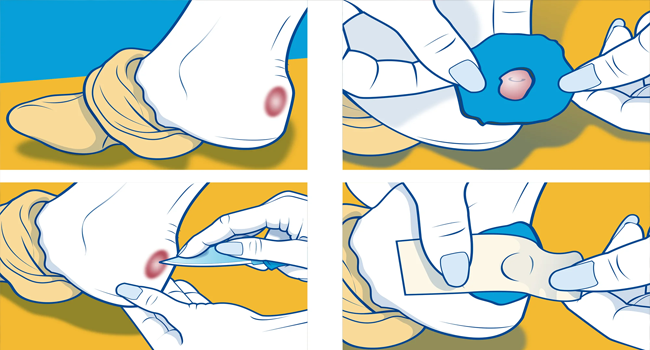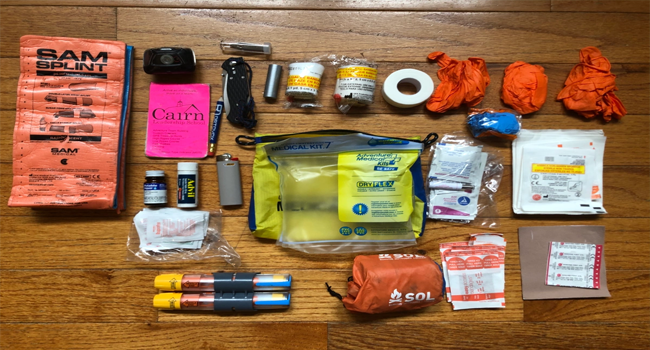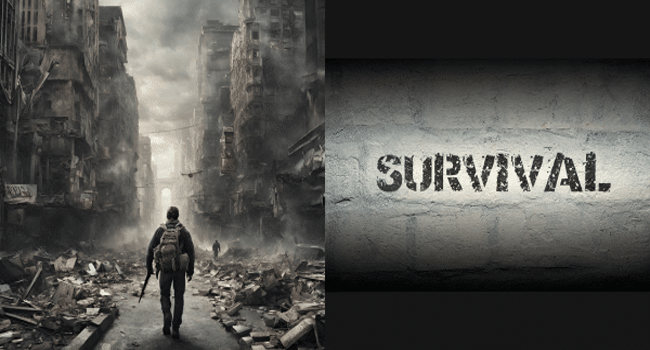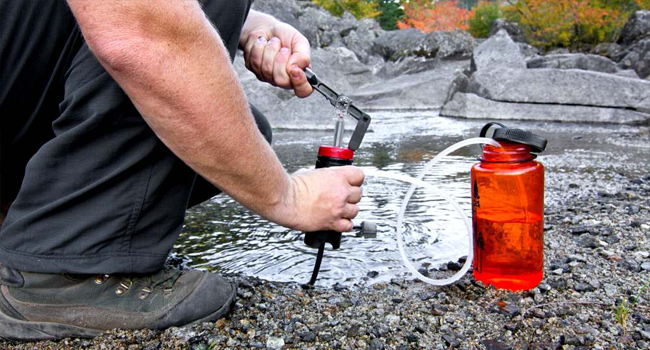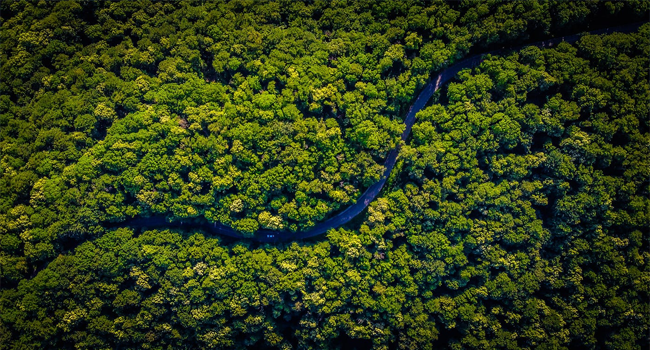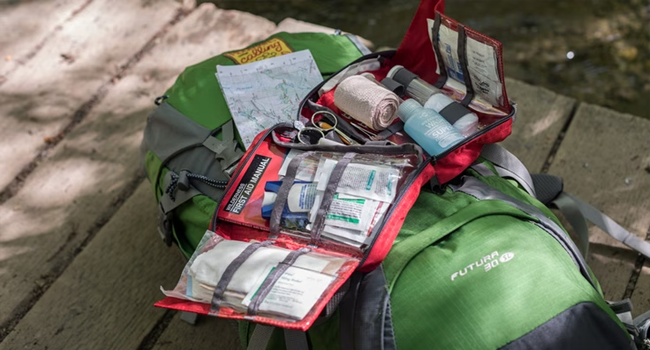
In the world of out of doors activities, whether or not it’s trekking, tenting, or backpacking, having a strong understanding of the first useful resource is paramount. When you enter the great outside, you disclose yourself to diverse risks and uncertainties, making it crucial to be prepared with the information and abilities to take care of emergencies. Here are some essential first resource talents for out of doors survival that may make a significant difference in crucial conditions.
Basic Wound Management:
Knowing how to dress and bandage wounds easily is essential in any outdoor setting. Carry a nicely stocked first resource package with adhesive bandages, sterile gauze, antiseptic wipes, and adhesive tape. Learn to evaluate the severity of a wound and deal with it immediately to save you from contamination.
CPR (Cardiopulmonary Resuscitation):
Understanding the right technique and being capable of performing CPR can drastically increase the probability of survival for a person in misery. Enroll in a CPR certification direction for a hands-on getting-to-know experience.
Treatment of Fractures and Sprains:
In the outdoors, a simple fall can result in fractures or sprains. Learn how to immobilize and assist injured limbs using splints or improvised substances like hiking poles. This ability is vital to prevent further harm and make evacuation less difficult.
Dealing with Allergic Reactions:
Allergies to insect stings, flora, or food can result in severe reactions. Carry antihistamines and an epinephrine vehicle injector in case you are privy to hypersensitive reactions. Recognize the signs and symptoms of a hypersensitive response and recognize how to administer these medicines.
Snake Bites and Insect Stings:
In many outdoor environments, encounters with snakes and insects are feasible. Understand the difference between venomous and non-venomous snake bites. Learn to clean and get dressed in the wound nicely. Be familiar with the symptoms of anaphylaxis in case of severe insect stings.
Water Safety and Drowning Prevention:
Knowing how to respond to drowning emergencies is important if you’re out of-doors sports contain water. Learn fundamental water rescue strategies, including the Reach-Throw-Row-Go technique. CPR skills are, in particular, critical in water-related emergencies.
Navigation and Communication:
In some conditions, the potential to navigate and speak effectively can be a lifesaver. Carry a map and compass, and know a way to use them. Additionally, be acquainted with signaling techniques using mirrors, whistles, or other available resources to attract interest in an emergency.
Psychological First Aid:
Outdoor survival isn’t always physical well-being; intellectual health is similarly important. Be prepared to offer emotional support to yourself and others in difficult conditions. Stay calm, check the scenario, and offer reassurance to the ones in misery.
Wilderness First Aid Training:
Consider taking a wilderness-first useful resource path. These courses are designed to cope with specific challenges faced in outdoor environments. They provide hands-on education and scenarios that simulate actual life conditions, improving your capability to respond successfully.
Remember, prevention is as critical as intervention. Before heading outdoors, research the vicinity, be aware of possible dangers, and prepare for them. Equip yourself with the necessary skills and understanding to handle emergencies, ensuring a safer, more fun, out-of-door experience.
Avalanche Safety:
Know-how avalanche safety is critical for skiing or mountaineering in snowy environments. Learn to recognize avalanche-inclined regions, use avalanche transceivers, and practice effective rescue techniques. Preparing for this particular risk can be a lifesaver in winter outdoor adventures.
Improvised First Aid Techniques:
You might need access to a stocked first aid kit in the barren region. Learn how to improvise with herbal materials or commonplace objects in your environment. For example, you could use a bandana or garb as a makeshift bandage or create a splint from branches.
Hydration and Nutrition:
Proper hydration and nutrients play a large role in preventing emergencies. Dehydration can cause fatigue and impaired decision-making, even as inadequate nutrients can weaken the frame’s potential to improve. Understand how to purify water and nutrient-dense snacks to sustain energy during outdoor activities.
Infection Prevention:
In the absence of instantaneous scientific facilities, preventing infections will become essential. Emphasize the importance of cleanliness while treating wounds. Carry antiseptic answers or wipes to disinfect wounds, and be meticulous approximately non-public hygiene to reduce the risk of infections in the area.
Understanding Altitude Sickness:
If your outside adventure involves high-altitude locations, be aware of the signs of altitude sickness. Learn to differentiate between moderate and extreme altitude illness and understand the correct response, which may encompass descent to lower elevations.
Proper Use of First Aid Tools:
Please familiarize yourself with the gear for your first useful resource package and understand its proper usage. This includes not most effective bandages and medications but equipment like scissors, tweezers, and safety pins. Knowing how to use those gadgets correctly could make a large distinction in the great care you offer.
Managing Shock:
Shock may be a life-threatening condition that regularly accompanies intense injuries. Understand the symptoms of shock, along with rapid breathing, weak spots, and light pores and skin, and learn how to manage it by retaining the character warm, maintaining their airway, and in search of scientific help promptly.
Communication with Emergency Services:
Recognize how to speak successfully with emergency services in regions with cellular reception. Understand how to provide your area using coordinates or landmarks. Remember to remember TV for PC communicators in faraway places for reliable emergency communication.
Team Collaboration:
If you are part of a collection at some point of out-of-door activities, establish clean verbal exchange and roles in case of an emergency. Collaborate with others to evaluate the situation, allocate tasks, and offer assistance. Teamwork can beautify the effectiveness of the first resource in challenging conditions.
Continuous Learning and Updates:
First aid practices and hints may additionally evolve through the years. Stay updated on the cutting-edge, most useful resource techniques and pointers. Consider refreshing your competencies frequently thru publications, workshops, or self-look to ensure you are well-organized for any scenario.
Understanding Local Wildlife and Plants:
A crucial factor of outside first useful resource is being aware of potential dangers from nearby flora and fauna and plant life. Learn to identify toxic plants, venomous snakes, and dangerous animals inside the location you’re exploring. This knowledge permits you to take preventive measures and respond as it should be if a stumble occurs.
Fire Safety:
In outside settings, fire may be both a pal and a foe. Understand how to accurately build and preserve a fire for heat, cooking, and signaling. Additionally, understand how to manage and treat burns from accidental touch with flames or warm surfaces.
Rescue Techniques:
Knowing how to evacuate or rescue a person from a hard terrain is important. Learn fundamental rope paintings, knot tying, and different rescue strategies for falls, entrapments, or water rescues. Practice those talents in managed surroundings to enhance your skillability.
Preventing and Managing Insect-borne Diseases:
In many out of doors environments, insects can convey sicknesses, including Lyme disorder or malaria. Take preventive measures like the usage of insect repellent and carrying shielding apparel. Learn to apprehend the signs and symptoms of insect-borne illnesses and recognize the perfect route of motion.
Proper Use of Tourniquets:
Understanding how to use a tourniquet may be a lifesaver in severe bleeding conditions. Understand when and how to observe a tourniquet well, as improper use can result in complications. This ability is especially important in faraway regions where professional, scientific help might be challenging.
Emergency Shelter Building:
If faced with unexpected climate changes or an unplanned single-day stay, the capability to construct a simple emergency shelter is useful. Learn to build shelters using available substances to protect yourself and others from the factors.
Adequate Clothing and Gear:
Properly decided clothing and tools contribute significantly to preventing accidents and illnesses. Dress correctly for the climate, wear robust footwear, and bring essential tools, including rain jackets, hats, and gloves. Being prepared can mitigate the chance of exposure-related troubles.
Psychological Resilience:
Outdoor survival isn’t always just about bodily skills; intellectual resilience is equally essential. Develop coping mechanisms for stress and anxiety in difficult conditions. Stay fantastic and focused, and encourage yourself and others to overcome difficulties.
Hygiene Practices:
Maintaining appropriate hygiene practices in out of doors environments can save you infections and illnesses. Emphasize proper handwashing, especially earlier than managing food or attending to wounds. Carry biodegradable soap and use Leave No Trace principles to decrease your effect on the environment.
Know Your Limits:
Knowing is one of the most crucial first-aid abilities while seeking expert assistance. Recognize your limitations and the constraints of your abilities and sources. In a few situations, the exceptional route of action can be to name a service and look ahead to skilled experts to intervene.
Ultimately, getting to know first aid abilities for outside survival is an ongoing method that calls for an aggregate of theoretical understanding and sensible enjoyment. By investing effort and time in learning and practicing these abilities, you no longer beautify your non-public protection but also contribute to the well-being of those around you in the superb outside. Remember, being prepared can flip a potential catastrophe into a possible state of affairs, making your outdoor adventures safer and more enjoyable.
